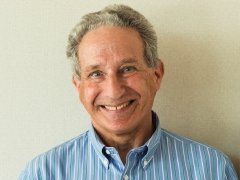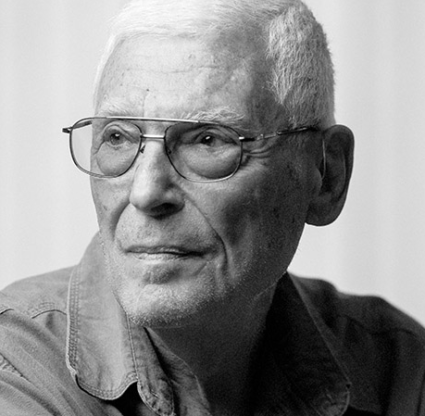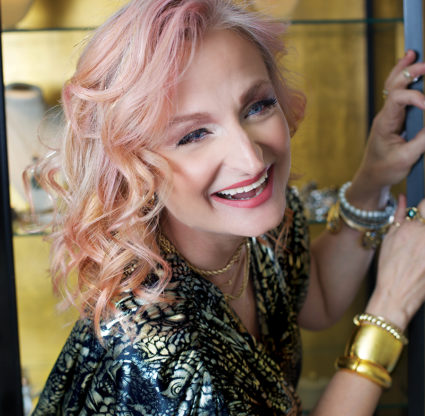We care about your health. Every year, for example, we offer a list of the area’s top doctors and we regularly bring you the latest news in health/nutrition/fitness in our Feel Good column. In this spirit, I recently checked in to see what had been done with the $3 million Jay and Patty Baker donated two years ago to set up a palliative care department at NCH Baker Hospital in Naples.
 The path leads directly to Shirley Codada, M.D., brought in from Emory University in Atlanta to lead this effort as medical director. And, if first impressions count, well—just wow. She engages, smiling and warm, and you know right away you’re with someone who cares about you and everyone else in her orbit. And it is so especially important for her work, which she describes as “providing the best quality of life for people with serious illness. We are not hospice. We manage symptoms—pain, shortness of breath, anxiety, emotions, spiritual matters, family relationships.” Warm definitely helps here, along with a lot of expertise.
The path leads directly to Shirley Codada, M.D., brought in from Emory University in Atlanta to lead this effort as medical director. And, if first impressions count, well—just wow. She engages, smiling and warm, and you know right away you’re with someone who cares about you and everyone else in her orbit. And it is so especially important for her work, which she describes as “providing the best quality of life for people with serious illness. We are not hospice. We manage symptoms—pain, shortness of breath, anxiety, emotions, spiritual matters, family relationships.” Warm definitely helps here, along with a lot of expertise.
If we got to sit in on her daily meetings with the staff—four nurse practitioners, two licensed social workers, one full-time chaplain and several part-time chaplains—here are the kinds of cases you’d hear her talking about.
Learning Acceptance—Getting His Wish
“A man came in,” Codada tells me, “with a neurodegenerative disorder. Though he was on life support for breathing, he believed he would survive. He really wasn’t going to get better, and we worked to get him to accept that. He didn’t have much family in the area. He couldn’t talk, but we got him to where he was smiling a lot and brought in a chaplain and got him to accept his situation. In the end, he wanted no more machines to keep him going. His one wish was to see the Super Bowl on a big screen, and we managed that for him. He died a week later.”
His Decisions, Not His Family’s
Another patient had suffered a locked-in stroke. He couldn’t move or talk but understood everything. “We talked to his family about what he would want,” Codada says. “But along the way, we used an eye-blinking system with him—he’d blink with the right answers to our questions. Using this system, we learned that—contrary to what his family thought he wanted—he was willing to live like this and be with his family. He agreed to let our support system work for him. He actually started moving a little and we ended up discharging him to a place for rehab.”
Closure with Family … at Last
Codada tells of another case, a man from Central America who didn’t speak English. “There was multi-organ failure going on,” she recalls. They tracked down the town he was from and found his family. “He had been away for years,” Codada says, “and his family wanted him home, so arrangements were made to fly him back. His daughter was so happy to see him, and he was able to get closure and spend time with his family before he died.”
Holocaust Survivor Fights On
“We took on the case of a woman who had survived a Nazi concentration camp,” Codada says. “She had written a book about her experience and had a strong sense of herself. ‘I am my own person,’ she said. She knew she wasn’t going to get better, but she wanted to keep fighting. And so she did.”
Related: Here Come the Game Changers
So how is the palliative care department doing now? On the day she and I spoke, it was managing 70 cases. “We get six to eight new consults every day,” Codada says, “and most are in the hospital already. We’re involved with 15 percent of the hospital’s patients, and that number has increased every year.”
But there are many challenges ahead. “We’d like to get patients earlier, before real crisis sets in,” Codada says. “We would like to see more living wills. It doesn’t mean you’re dying if you set one up. I have one. Prescribing opiates to help people with pain is a real problem these days. Since tighter restrictions have been put in, pharmacies make people feel like addicts when trying to get their pain medicine. We need to work with pharmacies on that. And as with that woman who had written a book on her life in a concentration camp, I’d like to help patients record their stories as legacies of their lives. So many of them have great stories to tell. I’m looking for community partners to help with this.”
Codada believes that a palliative care doctor is born, not made. “You’ve got to have charisma at crisis time to build confidence in patients and their families,” she says. From what I’ve seen, she’s quite the natural. And by the record, she’s building quite the program here. We’re delighted she moved to Naples from Atlanta, where she loved her work at Grady Hospital but hated the traffic. Let’s not clog up those roads here too much. OK?





